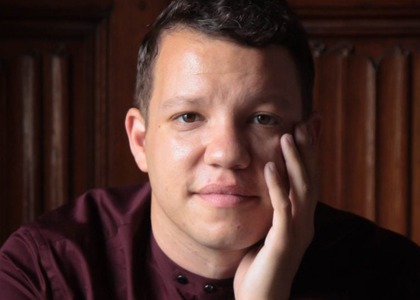> [Archived] Interviews

Interview with conductor Ryan Bancroft
How have the rehearsals gone so far?
Very well, I have worked hard togeher with an orchestra that wants to play new songs and to play them well - as it can be noticed in the case of the Alexander vom Zelinski one. It is an ensemble with a lot of energy.
It is not your first tme in Romania. How wold you describe your relationship with the orchestra?
This is my third collaboration with the Radio National Orchestra - this time we have a different program. I have passed through different repertoires together with them, from the early Romanticism area with Beethoven, to Ceaikovski or Mendelssohn, and now we are at the beginning of the XXth century - fact that proves the abilities this orchestra has. I am always eager to return because I have made a lot of friends in this ensemble.
Tell us about the program you will present on Friday, September 6th.
This program was inspired by multiple aspects - I have chosen the first work by Debussy due to my experience as a dancer. His music is influenced by dance, certainly, but it has a poetic foundation as well, which links the program of the evening from the Claude Debussy works to "The Little Mermaid" by Alexander von Zemlinsky. Certainly, "Prelude to the Afternoon of a Faun" changed the history of music, innovating the structure, as well as the harmony. Afterwards come the "Nocturnes", perhaps one of his most cherished compositions - in this work he is influenced by painting and poetry, by the art of his time. However, it would be an error to see his works as a dreamy or emotional music - he considered himself a Symbolist composer, so that the works we will be presenting, at least, were written following the Symbolist customs, not the Impressionist ones. Therefore, there is a series of details we have to emphasize, it is not only about an airy and imponderable music. The work of Alexander von Zemlinsky brings us a composer influenced by Richard Strauss, Gustav Mahler or Richard Wagner. I reckon similarities with the two Claude Debussy works can be noticed, but I have a different approach to each of the three works. Debussy, on one hand, does not require special efforts, and Zemlinsky is like a raw diamond that constantly needs to be polished - to let the music shine.
Translated by Drangoi Ioana – Alexandra, Facultatea de Limbi și Literaturi Străine,
Universitatea din București MTTLC, anul I














